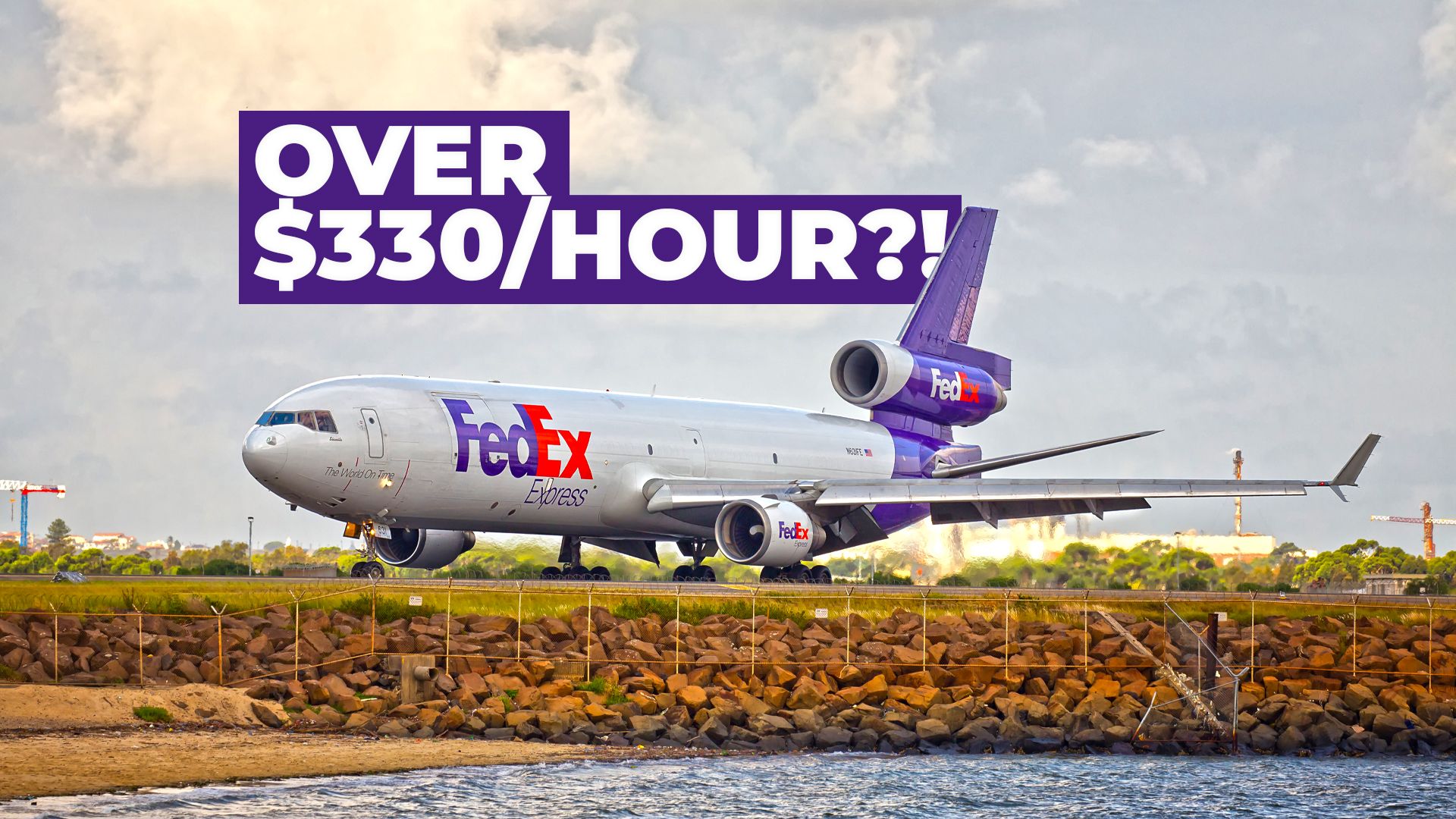World
FedEx Express Pilots’ Salaries Rise as Air Cargo Demand Surges

FedEx Express, recognized as the world’s largest cargo airline by fleet size, is witnessing a significant surge in pilot salaries as demand for air cargo services continues to grow. Currently operating nearly 400 aircraft and serving over 375 destinations across six continents, the airline employs more than 5,800 pilots, all of whom are represented by the unionized Air Line Pilots Association (ALPA).
Salary Breakdown
According to data from ThrustFlight, a FedEx Express pilot can expect a basic annual salary ranging from approximately $80,000 for entry-level positions to over $200,000 for more seasoned pilots. This salary structure is based on an average of 74 flight hours per month, which is the minimum guaranteed by the airline. First Officers can anticipate the following salaries based on seniority:
– Year 1: $77,760
– Year 2: $162,240
– Year 3: $197,760
For those promoted to the rank of Captain, salaries increase significantly:
– Year 1: $224,640
– Year 2: $253,440
– Year 3: $268,800
These figures do not include additional per diem payments or 401(k) contributions, which can significantly enhance overall compensation. Pilots flying more than the minimum flight hours can also see their pay increase accordingly.
Bonuses and Incentives
In addition to their base salaries, FedEx Express pilots benefit from various bonuses and incentives that can enhance their annual earnings. Some of these include:
– **Holiday Bonus**: Up to 50% of monthly salary for peak season work
– **Profit Sharing**: Up to 20% of annual salary based on company performance
– **Overtime Pay**: Time-and-a-half for hours over 80 per month, double time for hours exceeding 90
– **Delay Pay**: 150% of hourly wage for delays over two hours
– **Trainer Pay**: An additional 10% salary increase for training new pilots
– **International Pay**: Bonuses up to 20% for long-haul international flights
– **Seniority Pay**: 12% bonus after 12 years, increasing to 15% after 15 years
With these additional incentives, experienced captains at FedEx Express can anticipate total annual earnings around $350,000.
Industry Comparison
When comparing salaries across the air cargo sector, FedEx Express offers one of the most competitive pay packages for pilots, especially for those with experience. United Parcel Service (UPS) is a close competitor, offering salaries for its most experienced captains that can exceed $390,000. Conversely, pilots at independent cargo operators like Atlas Air and Kalitta earn less, ranging between $150,000 and $200,000, while Amazon Air pilots reportedly earn up to one-third less than their FedEx counterparts.
Global Pilot Bases
The headquarters of FedEx Express is located at Memphis International Airport (MEM), but pilots operate from various bases worldwide, including:
– **North America**:
– Los Angeles International Airport (LAX)
– Anchorage Ted Stevens International Airport (ANC)
– Indianapolis International Airport (IND)
– **Asia**:
– Hong Kong International Airport (HKG)
– **Europe**:
– Cologne Bonn Airport (CGN)
Requirements for Employment
Prospective pilots seeking to join FedEx Express must meet specific criteria outlined on the airline’s website. These include holding a Bachelor’s degree from an accredited institution and accumulating at least 1,500 hours of fixed-wing flight time, with a preference for jet experience. Regulatory requirements set by the US Federal Aviation Administration and other agencies include possessing an Airline Transport Pilot certificate, a valid first-class medical certificate, and a radiotelephone operator’s permit. Candidates must also complete a Pilot Records Improvement Act evaluation and a pre-employment drug test.
FedEx Express offers pathways for pilots to gain experience through military service or commercial operations, with many former military pilots transitioning to the airline.
The FedEx Express Legacy
Founded in 1971 in Memphis, Tennessee, FedEx Express has established itself as a leader in the global cargo airline sector, operating over 380 aircraft to 375 destinations across 220 countries and territories. The airline is particularly known for its overnight delivery services in the US and its international express capabilities.
The COVID-19 pandemic initially led to a spike in demand for air cargo, a trend that has persisted despite recent challenges such as rising fuel costs and increased competition from rivals like UPS Airlines and DHL. The emergence of e-commerce giants has also pressured traditional cargo carriers to innovate.
Sustainability and Safety Initiatives
FedEx Express is actively pursuing sustainability initiatives, aiming for carbon-neutral operations by 2040. The airline focuses on modernizing its fleet, enhancing fuel efficiency, and exploring alternative energy sources. It boasts a commendable safety record, with only one fatal incident reported in March 2009, involving a McDonnell Douglas MD-11F that tragically resulted in the loss of both the pilot and co-pilot.
With its diverse fleet and competitive salaries, FedEx Express continues to attract top talent in the aviation industry, reinforcing its position as a dominant player in express shipping while adapting to the evolving global landscape.
-

 Science3 months ago
Science3 months agoToyoake City Proposes Daily Two-Hour Smartphone Use Limit
-

 Health4 months ago
Health4 months agoB.C. Review Reveals Urgent Need for Rare-Disease Drug Reforms
-

 Top Stories4 months ago
Top Stories4 months agoPedestrian Fatally Injured in Esquimalt Collision on August 14
-

 Technology3 months ago
Technology3 months agoDark Adventure Game “Bye Sweet Carole” Set for October Release
-

 World3 months ago
World3 months agoJimmy Lai’s Defense Challenges Charges Under National Security Law
-

 Lifestyle4 months ago
Lifestyle4 months agoVictoria’s Pop-Up Shop Shines Light on B.C.’s Wolf Cull
-

 Technology3 months ago
Technology3 months agoKonami Revives Iconic Metal Gear Solid Delta Ahead of Release
-

 Technology3 months ago
Technology3 months agoApple Expands Self-Service Repair Program to Canada
-

 Technology3 months ago
Technology3 months agoSnapmaker U1 Color 3D Printer Redefines Speed and Sustainability
-

 Technology3 months ago
Technology3 months agoAION Folding Knife: Redefining EDC Design with Premium Materials
-

 Technology4 months ago
Technology4 months agoSolve Today’s Wordle Challenge: Hints and Answer for August 19
-

 Business4 months ago
Business4 months agoGordon Murray Automotive Unveils S1 LM and Le Mans GTR at Monterey









